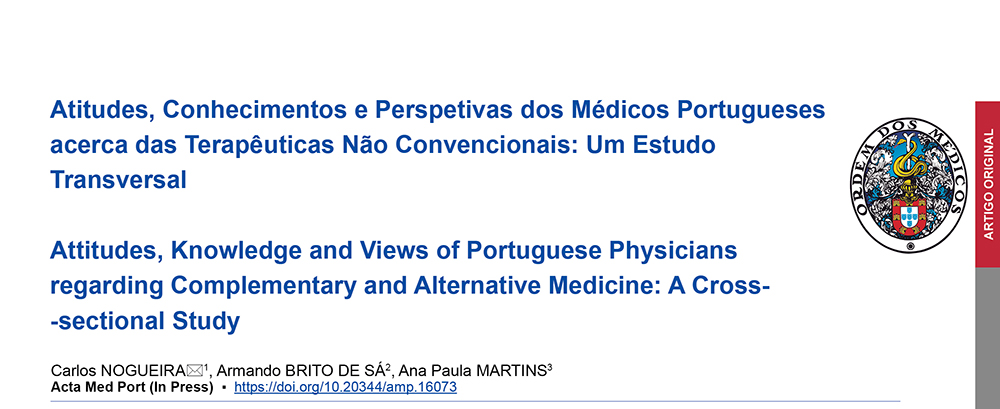SOCIAL MEDIA
Portuguese Medical Association's Scientific Journal

Introduction: The widespread use of complementary and alternative medicine and the fact that these are not innocuous makes it important for physicians to be familiar with it in order to properly advise their patients. The aim of this study was to identify attitudes, knowledge and views of Portuguese physicians about complementary and alternative medicine.
Material and Methods: An observational, analytical, cross-sectional study was performed. A questionnaire with dichotomous and multiple-choice answers on a 5-point Likert scale, was sent to all doctors registered in the Portuguese Medical Association. It included beliefs and convictions regarding complementary and alternative medicine; aspects related to the types of complementary and alternative medicine legally approved in Portugal; sources used to obtain information about complementary and alternative medicine; and questions about complementary and alternative medicine in the Portuguese context. The statistical analysis of the data was made using SPSS v.27.0 and all conclusions were taken at a significance level of 5%.
Results: From a total sample of 4334 doctors that fully completed the questionnaire, 45.5% reported not feeling comfortable talking, debating, and elucidating their patients about complementary and alternative medicine. The majority, 68.6%, considered that the competence in medical acupuncture of the Portuguese Medical Association should remain available. However, 72.4% believe that complementary and alternative medicine should not be included in the National Health Service.
Conclusion: Portuguese doctors seem to have a low level of knowledge about complementary and alternative medicine, and a relevantpart of them does not feel prepared to advise their patients about it.